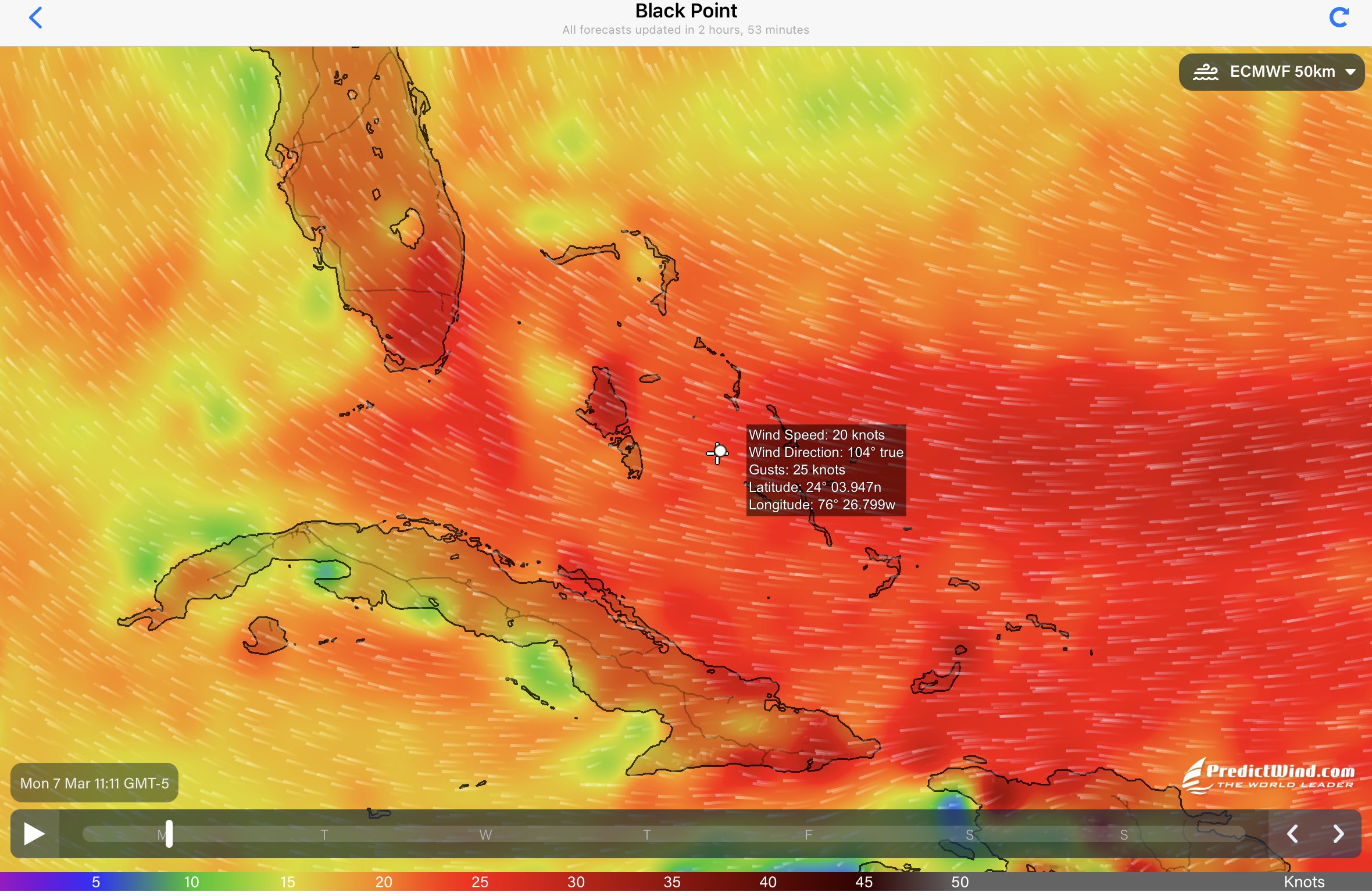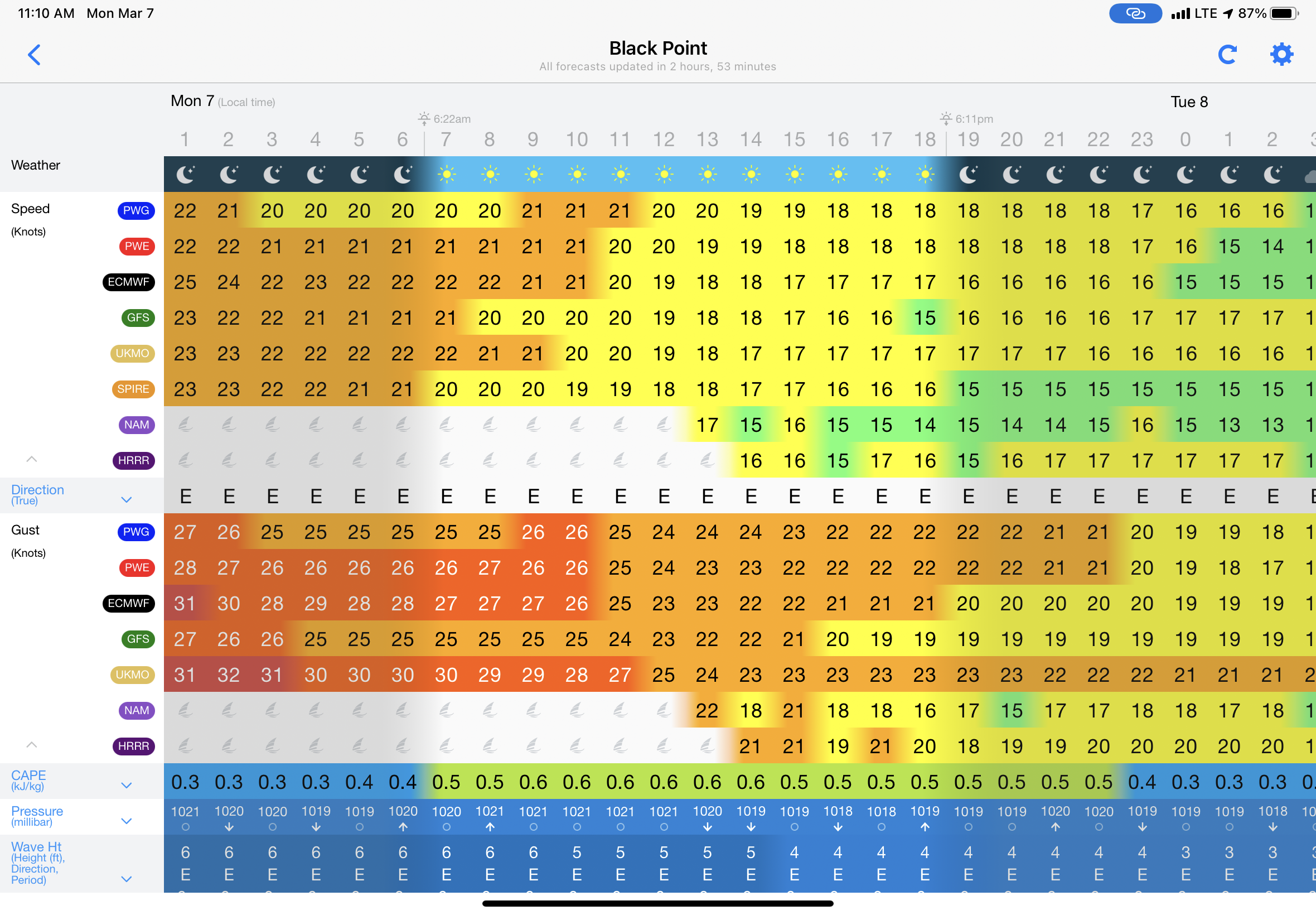Lessons Learned
After traveling over 1700 nm in our sailboat, we have learned a few lessons along the way
After living aboard our 38’ sailboat for over 4 months, we’ve learned a few lessons. Some probably should’ve been obvious upfront, others we only would have learned after actually living on our boat. For those of you who liveaboard, did you have anything to add? What are some of your biggest lessons learned since casting off the lines and living on the sea?
1. Our world revolves around the weather.


This may seem obvious, but our life revolves around the weather. Every day we spend multiple hours looking at weather forecasts and determining what we think the wind will do that day, and the next day, and even the next week. Most of the time, this is like asking a magic eight ball which in turn replies, “reply hazy, try again.” In our experience, weather forecasting is an art form that very few have the knack for. We have spent hundreds of dollars on expensive programs to try to help give us a glimpse of what the wind will be doing. In some cases, such as Chris Parker’s Gulf Stream crossing emails, they have been fairly accurate and have helped us pick a good weather window to cross. Others are sometimes right, which gives us hope, until we are out in 30+ kt winds with 6-8’ seas, when 18-20 kts and 2’ seas were predicted. Regardless, when people ask us what we do all day, the majority of our day is spent looking at the weather, then trying to pick an anchorage (or marina) that will accommodate the strength and direction of the wind.
2. Dishes are the worst.
Unsurprisingly, our 44-year-old boat does not have a dishwasher. This means we need to do the dishes every day, three times (plus) a day. We make nearly every meal on the boat, which means there is no escaping dish duty. There are only two of us, which means we don’t have too many dishes, but our galley is small. So, in order to do the dishes, we have to clean everything then immediately dry them, or the entire boat feels cramped.
Dishes are a never-ending battle aboard Samba
There is also the matter of water consumption. We -only- have 85 gallons of water storage on board. In the states, where water is prevalent, this is not an issue because we can just pull into the next marina and turn on a spigot. In the Bahamas, this becomes an issue. Water is hard to come by and expensive, and if you don’t have a water maker, you need to plan your trips around where the nearest water source is. All in all, we’ve found a healthy balance of sharing dishes duty and reducing our water consumption. On average, we use 10 gallons per week.
3. Cruising is a lifestyle, not a vacation.
Before we decided to take a sabbatical, we watched a lot of YouTube videos of couples and families who were sailing full time. These adventurers were extremely inspiring and gave us a great push towards this lifestyle. The downside of YouTube (and all social media) is that you generally don’t want to turn the camera on when you’re having a bad day, or a boring day. Luckily, we already had experience sailing, and anyone who has had to wait for the AP flag to drop so they could race on a windy (or not so windy day), understands this frustration. So, we thought we knew how frustrating the weather could be. But we’ve likened cruising to living in New York City. We’ve had friends who have lived there and expressed that doing everyday tasks is just a little bit more difficult. Laundry, grocery shopping, commuting, dishes, etc.
Laundry is generally an all-day event. Our trusty laundry bag backpack helps us travel to the nearest laundromat or marina
For us, laundry is an all-day event. Our older boat also does not have a laundry machine *sigh*. So, when laundry day comes around (generally once every three weeks or so) we grab every piece of clothing, rag, towel, and sheet we can find. Stuff it into a large laundry bag, drop it into the dinghy, ride into town, take an uber (or walk) to the nearest marina or laundry mat, then proceed to cram as many clothes as possible into one machine (because cruisers are also very cheap) and then wait. If you’re lucky, the marina will have a pool, or a lounge you can wait in. Or you find the closest restaurant with WiFi, so you can download the latest weather. A couple of hours later, you hop back in the dinghy and very slowly drive back to the boat, in the hopes that all of your clean laundry does not get soaked in salt water, negating all of your hard work for the day. At this point, you are only half-way done. You still need to fold all of your clothes, put them away, and make the bed. Anyone who has had to make a V-Berth bed knows this is a task in itself. After wrestling your mattress and contorting your body in ways you didn’t know possible (we have started calling this boat yoga), you have had a workout and are ready to sleep in said sheets. And let’s not even get into grocery shopping/ provisioning.
Smiling faces after a day of snorkeling. Not shown two hours of checking weather prior, and timing the tide to make sure our dinghy does not get sucked out to sea
All this to say, cruising is hard. It’s not for the faint of heart. It can be isolating when the weather kicks up and you can’t go into town because you need to watch your anchor. It is very physically demanding (see boat yoga). There are very few down days. Even the days you get to snorkel in tropical blue waters, you are still thinking about your anchor, the trash, or what is the next thing that’s going to break? The major upside to all of this can be found in the next lesson learned.
4. You control your own time.
Taking a break from work means that you have very few demands on your time. Want to take a nap at 1pm? Go for it. Want to go for a hike today? No problem (weather permitting). Want to read 100 romance novels in a year? Totally doable.
On this day, we hiked to the top of Boo-Boo Hill in the Exumas, at 10am, on a Tuesday morning.
When we left our jobs last May, we wanted to “press pause”. We had been working for about 10 years in the corporate world, which is very demanding on your time. During deadlines we could easily spend 12+ hours at work. And in the evenings, we were so tired, we barely spoke to each other. We would turn on the TV and zone out for hours, before waking up and repeating the next day. Now we watch very little TV. We try to have at least one “adventure” per day. Sometimes that is taking the dinghy to go snorkeling, other days it’s changing the engine oil. Each day we are learning and experiencing something new. We have the time to meet new people and we have time for each other.
Sundowners at “Cruisers Beach” in Staniel Cay, with our buddy boat SV Dream Ketcher and new friends from SV Billy Pilgrim
Most people wait their whole lives to retire to be able to feel in control of their time. We are here to tell you, don’t wait. Press pause. It’s worth it.
When we return to “normal” life, we are really looking forward to having a dishwasher and washing machine, but we are also looking forward to taking the lessons we’ve learned from our time off. These include, spending more intentional quality time with each other, reaching out to make new friends and keeping in touch with the old friends, turning off the TV, and going on adventures.





